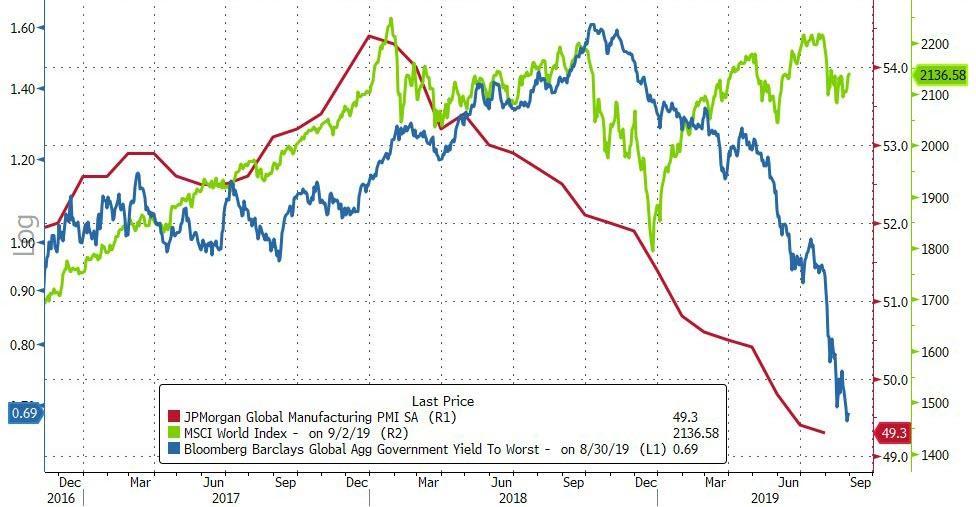Typically, with the advent of September, traders plan to come out of the blocks ready and raring to go. It's the last obvious time to turn a new leaf and settle on the strategies that will, hopefully, see you through to year-end. There's supposed to be an excitement in the air that is usually associated with the beginning of January. It just doesn't feel that way this time around.
Now it may just be that investors are planning to wait for U.S. markets to open officially before there is the expected beehive of activity as new positions are put on and risk ramped up. But there isn't that feeling of pent-up energy and traders chomping at the bit. There are a couple of reasons this year might be different.
A lot of the trades that have worked for much of the year have left people tired and distrustful, and with a sense they are overdone. Although you might be hard-pressed to find too many quantitative models that think so.

Buying global bonds at these yield levels simultaneously feels like something that must be done but just doesn't seem right. That's a real conundrum for those trying to contemplate how their year will end up.
The dollar trades like a champ. Now the decision has to be made whether to buy and hold it at prices that were forecast by very few analysts. Traders are getting very little solace from being told that if they liked the euro versus the dollar at 1.14, they must love it at 1.09. And, frankly, some of the obvious safe-haven trades have been running out of steam. Even as they have done nothing wrong to negate the story of why they are useful items in the best of portfolios. Patience is a virtue often in very short supply.
And equities are being very hard on those who want a clean narrative. They have serially looked really good and bad. Often in quick succession. Which should have meant they had something for everyone, but it seems like the opposite was more typically the case.
The buyers and the sellers are really just talking at cross purposes and not being successful convincing anyone to change their outlook. The jury is most definitely out on the global economy. But not on where you can get some yield.
Making none of this any easier is the long list of central bank meetings on the schedule.Unfortunately, even at this late hour, we are left debating exactly how much they will do. Let alone the fact that now, more than ever, we must consider whether the cure has become worse than the disease. It isn't only the predictable list of hawks who are warning that enough might be enough. It's especially concerning because the first thing any rate cuts are greeted with is calls to do more.
And we're unlikely to get a great deal of clarification from the myriad official speakers later this week. Still, all eyes will have no choice but to be on Fed Chairman Jerome Powell when he gives the last pre-FOMC talk, shortly after the August non-farm payrolls report. Where the whisper number is looking for something on the soft side.
And, of course, the digital nature of so much of the known-unknown risks has left headline danger extreme. Trade talks, Brexit and Hong Kong are hardly localized issues that can be compartmentalized or ring-fenced.
There is a real possibility that September will look a lot more like an August than a January. That's not necessarily a problem. It just has to be navigated accordingly. But taking a pass shouldn't be one of the options.
Commenti
Posta un commento